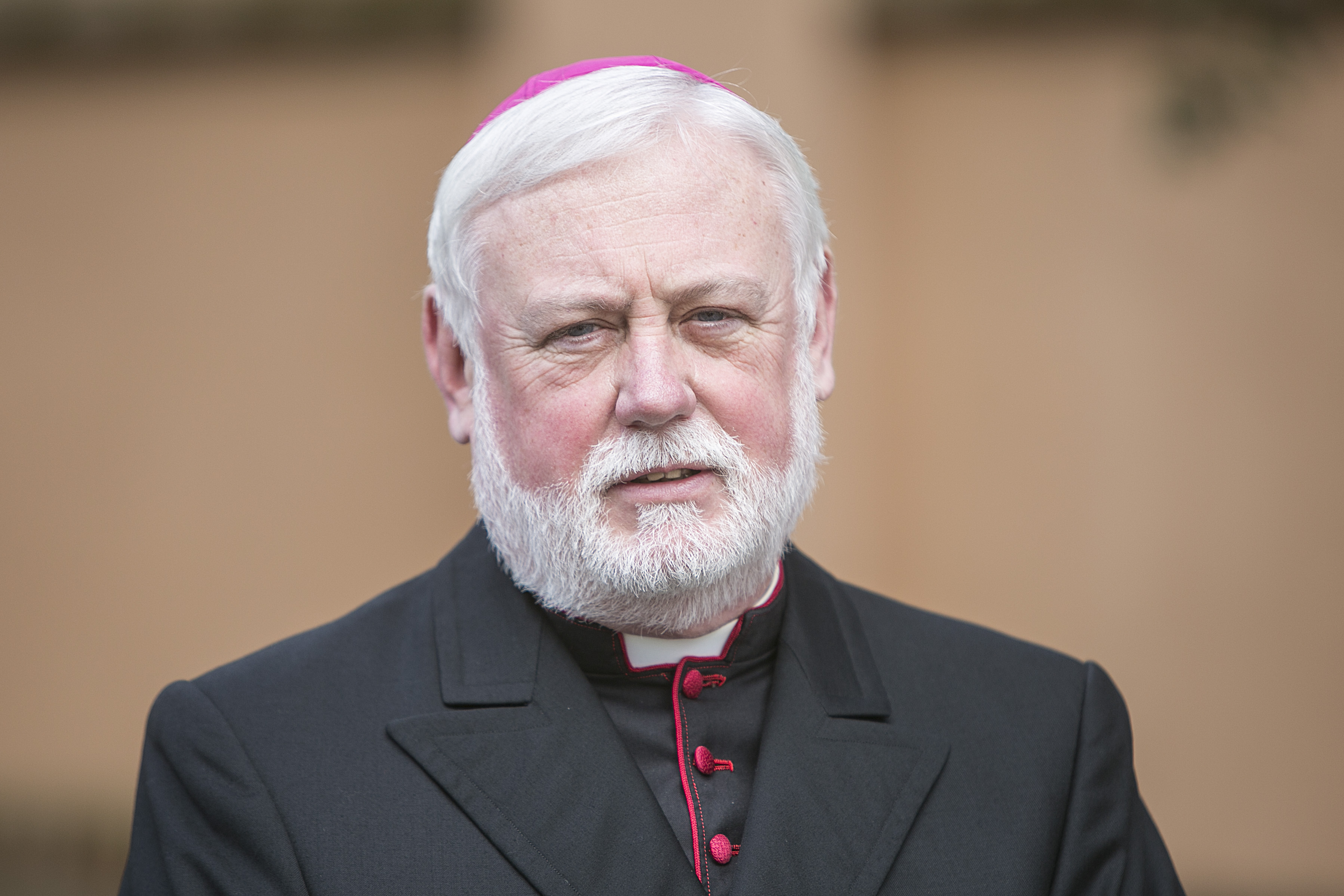After the attacks in France
Wind-ranging interview with the Secretary for Relations with the States after the attacks in Paris. “Before these atrocities, always intolerable and never justifiable, the entire world must unite to safeguard the dignity of the human person.” On the Islamic State: “How can we engage in dialogue with those who are insensitive to dialogue and refuse to know the other person’s humanity? How is it possible to engage in dialogue in the face of fundamentalism? I think that dialogue is very difficult right now”

“Intolerable and never justifiable atrocities”: Monsignor Paul Richard Gallagher, Secretary for the Relations with the States firmly commented the attacks of November 13 in Paris. We asked him to share his reflections on what happened in France, the reactions that ensued, and future scenarios.
Your Excellency, another attack in the heart of Europe: What are your thoughts on what happened in Paris?
“We were shocked and dismayed, as the Holy Father has said. In these hours we are close to the families of the victims, to the wounded, to France and to all those who have lost their dear ones in previous acts of terrorism. Before these atrocities, always intolerable and never justifiable, the entire world must unite to safeguard the dignity of the human person.”
Pope Francis, speaking at Tv2000, the day after the attacks, said they are parts of a “piecemeal third world war”…
“The Holy Father has used this expression, and rightly so, to describe the tragedy that has been afflicting humanity in recent years. Various players are involved in the conflict, many areas of the world suffer the consequences of the war, and many cultures and Countries mourn their beloved ones.
There is another feature of this piecemeal third world war that must not be overlooked: its battlefield is the globalized world, where even local and regional conflicts can extend with grea rapidity and force, severely devastating the world community.”
What behavior should be adopted at national level? For example, in France the “enemy” was inside. Can we defend ourselves? And how? Is military intervention advisable, or even justifiable?
“Within their national borders, the States have the duty to protect their citizens from acts of terrorism and from the presence of terrorists. Conversely, external intervention should be legitimated by the consensus of the international Community, in compliance with international Law. However, we have seen very clearly that the solution to the problem should not be found in military action alone.
In the present circumstances the international Community should unite, mobilize all safety measures available to counter terrorism.
This fight will be possible on the condition there is unity of purpose among all political and religious players.”
The Holy See’s position towards the Islamic State is clear: “Dialogue is not possible.” What can be done? Is diplomacy an option with the extremists?
“In general terms for the Holy See the path of dialogue and negotiation must always be sought to solve controversies and difficulties. Confrontation is never a solution to armed conflicts, which need to be addressed at global and regional level alike. This requires courageous decision for everyone’s good: it’s the road map for peace. Pontifical diplomacy promotes these values, calling upon everyone, at all levels, from Heads of State to the faithful, to all men and women of good will, to be artisans of peace, taking decisions for dialogue and reconciliation guided by patient perseverance, coupled by concrete gestures for the establishment of peace. In this case, the question should be: how can we engage in dialogue with those who are insensitive to dialogue and refuse to know the other person’s humanity? How can we dialogue before fundamentalist stances?
I think that given the present circumstances dialogue is very difficult because dialogue entails establishing a relationship with the other, who must at least be respected.”
From this perspective, what should be the role of responsible Muslim leaders?
“Jewish, Christian and Muslim leaders must and should play a fundamental role in the promotion of interreligious and intercultural dialogue and in the promotion of education aimed at mutual understanding. Muslim religious leaders today have a special responsibility in openly denouncing the instrumental use of religion to justify violence.”